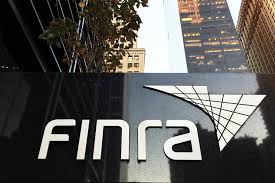
The American Arbitration Association recently amended its rules governing international arbitrations and mediations. Here is a succinct analysis.
As reported in SAA 2021-09 (Mar. 11) the AAA’s International Centre for Dispute Resolution (“ICDR”) amended its International Dispute Resolution Procedures effective for cases filed on and after March 1, 2021, unless the parties otherwise agree. As we said in #09, the changes are many and are not cosmetic. The amendments were announced in a March 1 Press Release that included an excellent summary. We borrow heavily to offer this succinct analysis.
Why the Changes?
The revised procedures: “are the result of a yearlong review by an ICDR drafting committee comprised of arbitration and mediation practitioners from around the world, and additional ICDR committees, administrative teams, and others. The review was undertaken in response to several factors driving changes to international dispute resolution, including third-party funding, the necessity of videoconferencing in the wake of COVID-19, heightened concerns regarding cybersecurity.”
Arbitration Changes
As described in another summary, the arbitration rule amendments: “promote greater efficiency and economy by addressing the early disposition of issues, emphasizing the use of mediation, and expanding the applicability of the expedited procedures. Importantly, the rules also place an increased emphasis on arbitrators’ ethical obligations.” Key arbitration rule changes:
reconfirm an arbitrator’s obligation to be independent and impartial and to perform the duties of an arbitrator with adherence not only to the ICDR Rules and the terms of the Notice of Appointment provided by the Administrator but also The Code of Ethics for Arbitrators in Commercial Disputes;
promote efficiency and economy by embracing the consideration of early disposition of issues, by presumptive incorporation of mediation, by expressly providing for the use of video, and by raising the ceiling amount for expedited arbitration procedures;
expand the scope of the rules for consolidation and joinder;
address third-party funding disclosure obligations and the use of tribunal secretaries – two issues that have recently come to the forefront in international arbitration;
call for greater transparency by directing that, with party approval, the ICDR publish redacted awards; and
authorize the tribunal to make a separate award for recovery of the payment, plus interest, in favor of a party paying the deposit of a non-paying party.
Mediation Changes
The Procedures are also amended as to mediation. The summary states the changes:
furnish detailed guidance regarding mediation procedure;
emphasize party control and involvement together with institutional support for finding and appointing a mediator;
highlight the parties’ and the mediator’s need to consider the appropriate cybersecurity, privacy and data protection levels needed for their case; and
address enforcement of mediated settlements pursuant to the Singapore Convention.
A Key Change
One change of note is in Article 5, which as described in Holland & Knight LLP’s March 5 Blog post, New 2021 Rules Issued by the International Centre for Dispute Resolution (ICDR), “Codifies] the ICDR’s practice of having the International Administrative Review Council, which is comprised of current and former ICDR executives, decide arbitrator challenges and other administrative disputes…. The IARC is constituted by at least three current or former ICDR executives or other individuals with significant arbitration experience that the ICDR may determine. The ICDR has published the procedures to be followed when submitting an issue to the IARC in the Council Overview and Guidelines that touch upon these topics. Although IARC had already been operating prior to the new Rules, by expressly including it under its Article 5, the ICDR reaffirms its commitment to further transparency of institutional decision-making in international arbitration.”
(ed: *The changes – the first since 2014 – are significant. A detailed section-by-section description starts at page 3 of the 8-page detailed summary. **Kudos to the AAA for providing extensive resource materials.)

This post first appeared on the Securities Arbitration Alert blog. The blog’s editor-in-chief is George H. Friedman, Chairman of the Board of Directors for Arbitartion Resolution Services, Inc.





